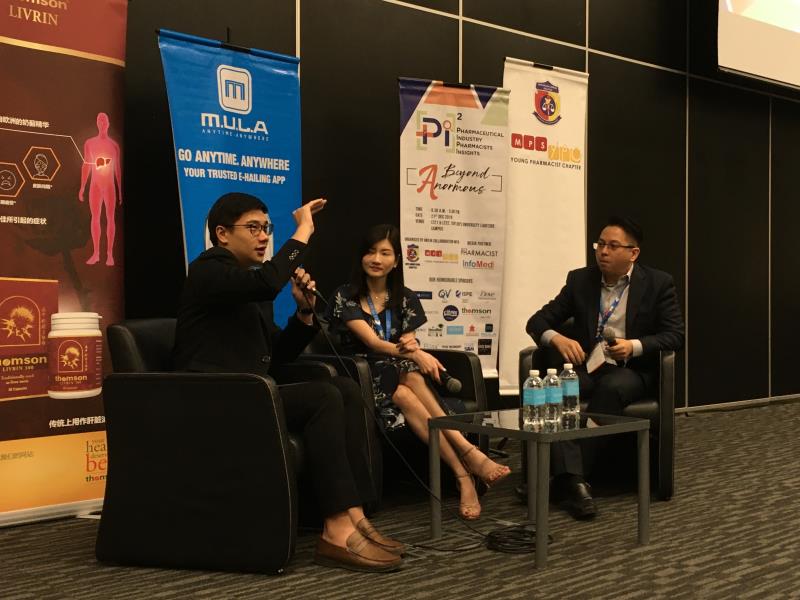Symposium showcases industrial pharmacy opportunities
Medical Writer
 L-R: Andrew Roy Pereira, pharmacist, Hospital Melaka; Soo Li Ping, senior manager regulatory affairs, Roche Malaysia; and Loke Jee Chung, manager, international business, Duopharma, speaking at a dialogue session at PIPI 3.0.
L-R: Andrew Roy Pereira, pharmacist, Hospital Melaka; Soo Li Ping, senior manager regulatory affairs, Roche Malaysia; and Loke Jee Chung, manager, international business, Duopharma, speaking at a dialogue session at PIPI 3.0.Pharmaceutical industry representatives highlighted lesser-known career opportunities for licensed pharmacists at the recent Pharmaceutical Industries Pharmacists Insights 3.0 (PIPI 3.0) symposium in Petaling Jaya.
Themed ‘Beyond “A”normous: all pharmacists’ values beyond Poison A license holders’, PIPI 3.0 saw experienced industry representatives touch on various aspects of professions in industrial pharmacy including pharmaceutical innovations, drug development, transitions from the hospital or community pharmacy to industry, business management, and global direction.
“Although the liberalization of provisionally registered pharmacist (PRP) training has been in effect since 2012, many are still not familiar with opportunities in the industry,” said Sharon Ding, PIPI 3.0 advisor, at the opening ceremony.
“Most have the impression that pharmacists in the industry mainly work in sales and marketing, or manufacturing. In fact, there are more non-conventional roles that need qualified pharmacists, such as clinical research in oncology, biologics development, radiopharmaceuticals, validation, stability, quality control, testing, and [data] interpretation,” she added.
Ding emphasized the importance of pharmacy graduates expanding their view of employment opportunities, noting that medium- and high-skilled jobs accounted for only 10.5% of national job vacancies as of early 2019, according to government statistics.
“The pharmacy profession, once seen to be stable, is no longer a guaranteed job-getter,” said Ding. “You’re not guaranteed a position in a hospital.”
Hosted at Taylor’s University Lakeside Campus in partnership with the Malaysian Pharmaceutical Society (MPS) Industrial Chapter, the conference saw an estimated 120 participants—primarily pharmacy students and recent graduates—attend to gain more insights into misconceptions about the industry, the differences between frontline and back-end professions, career advancement potential, and professional responsibilities.
At a dialogue session titled ‘Food for Thought: The Journey with Opportunities or Obstacles?’, Roche Malaysia’s senior manager regulatory affairs Soo Li Ping and Duopharma’s international business department manager Loke Jee Chung fielded questions from the audience regarding their experiences as industrial pharmacists.
On being asked about whether PRP made a difference to employability within the industry, Soo and Loke advised young graduates to complete their PRPs where possible.
“Don’t be too choosy; apply for multiple placements to make sure you complete your PRP and get your pharmacy license first,” said Soo. “It’s difficult to re-enter PRP if you enter the workforce immediately [after graduating] and then change your mind.”
They also added that pharmacy degrees should not define what range of professional roles to consider, but rather be considered as a supporting asset to any role.
“Don’t limit yourself to a specific department within a pharmaceutical company; try working in different departments to gain more exposure and to contribute your own experiences there,” said Loke.
Soo added, “From a multinational [company’s] perspective, pharmacists were traditionally hired for roles that needed higher science degrees, while commercial roles were designated for those with business degrees, and so on. But today, more pharmacists are going into commercial roles. Having a pharmacy degree actually helps you grow into any role within the industry that you’re interested in … it’s an enabler, not a limiter.”